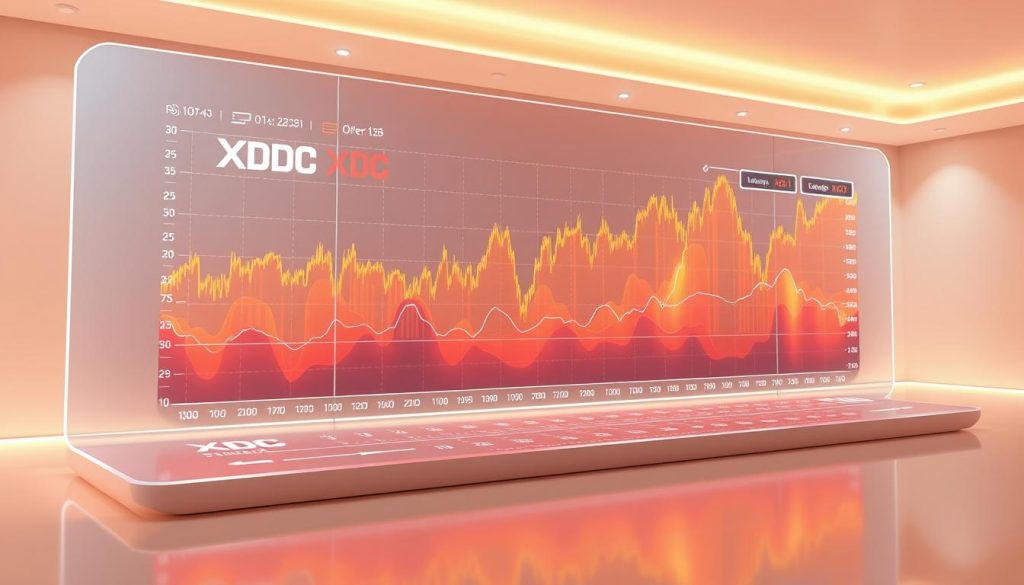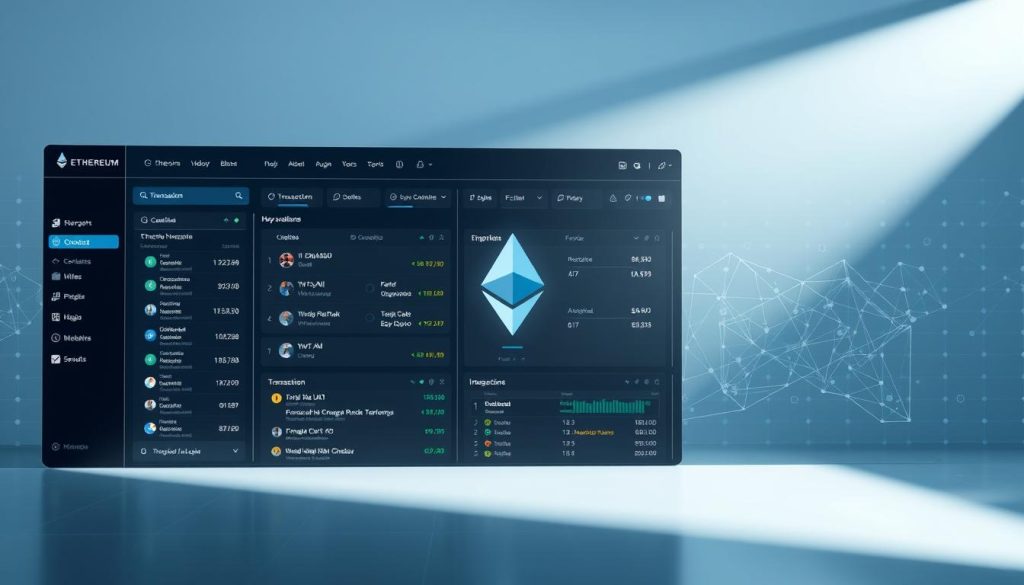Did you know that over 130 billion Dogecoins have been mined since its creation in 2013? The world of Dogecoin mining is a fascinating landscape that continues to intrigue cryptocurrency enthusiasts and potential miners alike. As someone deeply embedded in the crypto ecosystem, I’ve watched Dogecoin transform from an internet joke to a legitimate digital currency with real mining potential.
Can you mine Dogecoin in 2025? Absolutely. Dogecoin mining remains an accessible entry point for those curious about cryptocurrency. Unlike some complex mining operations, Dogecoin mining offers a relatively straightforward approach for beginners and experienced miners.
This guide will walk you through the essential aspects of Dogecoin mining, breaking down the technical barriers and providing practical insights. We’ll explore the tools, techniques, and strategies that can help you potentially earn some digital coins while understanding the broader cryptocurrency ecosystem.
Key Takeaways
- Dogecoin mining is still viable in 2025
- Basic computer hardware can be used for mining
- Understanding blockchain technology is crucial
- Mining pools offer better consistent earnings
- Initial investment and electricity costs matter
Understanding Dogecoin and its Blockchain
Diving into the world of cryptocurrency can feel like navigating a digital wilderness. Dogecoin stands out as a unique journey through the crypto landscape, blending humor with serious technological potential. Let’s unpack the mysteries behind this fascinating digital currency and explore its mining profitability.
What is Dogecoin?
Born in 2013 as an internet joke, Dogecoin quickly transformed from a meme into a legitimate cryptocurrency. Created by software engineers Billy Markus and Jackson Palmer, this digital currency features the iconic Shiba Inu dog mascot that captured the internet’s heart. Despite its playful origins, Dogecoin has become a serious player in the crypto market.
- Founded in December 2013
- Based on the Litecoin blockchain
- Supported by a passionate community
How Does Dogecoin Work?
Dogecoin operates on a proof-of-work blockchain system similar to Bitcoin. Miners solve complex mathematical problems to validate transactions and create new coins. The dogecoin mining profitability depends on several factors, including computational power, electricity costs, and current market conditions.
| Blockchain Characteristic | Dogecoin Specification |
|---|---|
| Block Time | 1 minute |
| Block Reward | 10,000 DOGE |
| Total Coin Supply | Unlimited |
Key Features of Dogecoin
Understanding the unique characteristics of Dogecoin can help miners assess its potential. The cryptocurrency offers fast transaction times and low fees, making it attractive for microtransactions and online tipping. Its inflationary model differs from Bitcoin’s fixed supply, which impacts long-term dogecoin mining profitability.
- Fast transaction processing
- Low transaction fees
- Strong community support
- Unlimited coin supply
“Dogecoin proves that cryptocurrency can be both serious technology and a fun community project.” – Crypto Enthusiast
The Mining Process Explained
Cryptocurrency mining is a fascinating digital ecosystem that powers blockchain networks. At its core, mining is the process of validating transactions and creating new coins using specialized computer hardware. For Dogecoin enthusiasts, understanding the mining landscape is crucial to success.
When it comes to mining Dogecoin, the process differs from other cryptocurrencies in several key ways. Unlike Bitcoin’s complex mining algorithms, Dogecoin uses a more accessible approach called Scrypt, which makes it friendlier for miners with less powerful dogecoin mining hardware.
What is Cryptocurrency Mining?
Mining is essentially a computational puzzle-solving activity where powerful computers compete to validate blockchain transactions. Miners use specialized dogecoin mining rig setups to solve complex mathematical problems, earning rewards in the form of new Dogecoins.
- Validates network transactions
- Creates new cryptocurrency tokens
- Maintains blockchain security
How Does Dogecoin Mining Differ?
Dogecoin’s mining process is uniquely designed to be more democratic and energy-efficient. The Scrypt algorithm allows miners with less expensive equipment to participate, making it more accessible compared to Bitcoin’s mining requirements.
The beauty of Dogecoin mining lies in its community-driven approach and lower barrier to entry.
Key differences include faster block generation times and a more distributed mining ecosystem. This approach ensures that individual miners can still compete effectively, even without massive industrial-scale dogecoin mining hardware.
Hardware Requirements for Mining Dogecoin
Diving into Dogecoin mining requires a strategic approach to hardware selection. The right equipment can make or break your mining success. Let’s explore the essential hardware components and what you’ll need to get started with dogecoin mining software.
When considering hardware for Dogecoin mining, miners have several critical components to evaluate:
- Graphics Processing Units (GPUs)
- Central Processing Units (CPUs)
- Application-Specific Integrated Circuits (ASICs)
- Cooling systems
- Power supply units
Recommended Mining Equipment
Modern Dogecoin mining demands specialized hardware. GPU mining remains the most accessible entry point for most cryptocurrency enthusiasts. Top performers include:
- NVIDIA GeForce RTX 3080
- AMD Radeon RX 6800 XT
- NVIDIA GeForce RTX 3090
Cost Analysis of Mining Hardware
Investing in dogecoin mining software and hardware requires careful financial planning. A typical mining rig can range from $1,500 to $5,000, depending on configuration and performance expectations.
| Hardware Type | Average Cost | Mining Efficiency |
|---|---|---|
| Entry-Level GPU | $500-$700 | Low |
| Mid-Range GPU | $800-$1,200 | Medium |
| High-End GPU | $1,500-$2,500 | High |
Remember, successful Dogecoin mining isn’t just about purchasing expensive hardware. It’s about understanding your equipment, optimizing your dogecoin mining software, and managing operational costs effectively.
Software for Dogecoin Mining
Diving into the world of Dogecoin mining requires the right software to unlock your cryptocurrency potential. Choosing the perfect mining software can make or break your mining experience, especially when targeting a dogecoin mining pool.
The software you select acts as the critical bridge between your hardware and the Dogecoin network. Not all mining programs are created equal, and understanding their nuances can significantly impact your mining efficiency.
Top Mining Software Selections
- CGMiner: Open-source solution with extensive customization
- EasyMiner: User-friendly interface for beginners
- MultiMiner: Versatile option with graphic interface
- AntMiner: Powerful software for serious miners
Setting Up Your Mining Software
Configuring your dogecoin mining pool software involves several critical steps. Start by downloading a reputable mining program compatible with your hardware. Ensure you have a secure Dogecoin wallet ready to receive your mined coins.
| Software | Difficulty Level | Compatibility |
|---|---|---|
| CGMiner | Advanced | Windows, Linux |
| EasyMiner | Beginner | Windows |
| MultiMiner | Intermediate | Windows, Mac |
Pro tip: Always verify your mining pool’s specific configuration requirements. Each dogecoin mining pool might have unique connection settings that you’ll need to input precisely.
Remember, the right software can turn mining from a frustrating experience into a rewarding journey.
Selecting the optimal mining software is your first step toward successful Dogecoin mining. Research, experiment, and stay adaptable in this dynamic cryptocurrency landscape.
Mining Pools vs. Solo Mining
Navigating the world of Dogecoin mining can feel like a complex puzzle. Miners face a critical decision: join a mining pool or go solo. The dogecoin mining difficulty plays a significant role in this choice, influencing potential rewards and investment strategies.
Mining pools offer a collaborative approach to cryptocurrency mining. They combine computational power from multiple miners, increasing the chances of solving complex blockchain challenges and earning rewards.
Pros of Mining Pools
- Consistent and predictable income
- Lower dogecoin mining difficulty for individual miners
- Reduced hardware investment requirements
- Regular small payouts
Cons of Mining Pools
- Shared rewards reduce individual earnings
- Pool fees can impact profitability
- Potential trust issues with pool operators
- Less control over mining process
Joining a Dogecoin Mining Pool
Selecting the right mining pool requires careful research. Look for pools with low fees, reliable payment systems, and transparent operational history. Popular pools like AikaPool and MultiPool offer robust platforms for Dogecoin miners.
When evaluating mining pools, consider factors like pool size, payout methods, and recent performance. The dogecoin mining difficulty fluctuates, making pool selection crucial for maximizing potential earnings.
Performance Statistics of Dogecoin Mining
Diving into the world of Dogecoin mining requires a keen eye for performance metrics. The cryptocurrency landscape shifts rapidly, and understanding key statistics can make or break your mining strategy. Let’s break down the critical performance indicators that every serious Dogecoin miner should know.
Tracking Dogecoin mining rewards demands a comprehensive approach. The network’s performance fluctuates based on several crucial factors:
- Hash rate dynamics
- Mining difficulty levels
- Network computational power
- Total mining rewards distribution
Network Computational Power Insights
Dogecoin mining rewards depend heavily on the network’s overall computational strength. Miners must stay informed about current hash rates and network statistics to maximize their potential earnings.
| Metric | Current Value | Trend |
|---|---|---|
| Network Hash Rate | 540 TH/s | Increasing |
| Mining Difficulty | 3.872 | Moderate |
| Average Block Time | 1 minute | Stable |
Mining Difficulty Trends
The historical graph of Dogecoin mining difficulty reveals fascinating patterns. Cryptocurrency enthusiasts know that mining difficulty directly impacts dogecoin mining rewards. As more miners join the network, the computational challenge increases, potentially reducing individual mining profitability.
Smart miners adapt to these changing dynamics by continuously monitoring network statistics and adjusting their mining strategies accordingly. Understanding these performance metrics is crucial for maximizing potential returns in the Dogecoin mining ecosystem.
Predictions for Dogecoin Mining in 2025
The cryptocurrency landscape continues to evolve, and Dogecoin mining stands at an interesting crossroads. Predicting the future of any digital currency requires careful analysis of multiple market factors and technological developments.
Experts are closely watching several key trends that could dramatically impact Dogecoin mining in the coming years:
- Increasing blockchain energy efficiency
- Potential shifts in mining hardware technology
- Cryptocurrency regulatory changes
- Global crypto market sentiment
Market Dynamics Shaping Dogecoin
A dogecoin mining calculator becomes increasingly crucial for miners seeking to understand potential profitability. The calculator helps investors assess:
- Current mining difficulty
- Electricity costs
- Hardware investment returns
- Projected cryptocurrency valuations
Mining Viability Projections
Cryptocurrency experts suggest that Dogecoin mining remains viable, but with growing complexity. Strategic miners will need to leverage advanced dogecoin mining calculators and stay adaptable to technological shifts.
“The future of Dogecoin mining lies in efficiency and strategic investment,” says crypto analyst Michael Roberts.
Successful miners in 2025 will likely focus on optimizing their approach, utilizing sophisticated mining calculators, and remaining flexible in their investment strategies.
FAQs About Dogecoin Mining
Diving into the world of Dogecoin mining can feel like navigating a complex digital landscape. Miners and crypto enthusiasts often have burning questions about how to can you mine Dogecoin effectively. Let’s break down the most common queries that pop up in the cryptocurrency community.
Is Dogecoin Mining Profitable?
Profitability for can you mine Dogecoin depends on several critical factors:
- Current Dogecoin market value
- Electricity costs in your region
- Hardware efficiency
- Network mining difficulty
Calculating potential earnings requires careful analysis. Small-scale miners might find it challenging to turn a significant profit, especially with rising competition and energy expenses.
Do I Need Special Skills to Mine Dogecoin?
You don’t need to be a computer genius to can you mine Dogecoin, but some technical knowledge helps. Basic understanding of:
- Computer hardware
- Cryptocurrency wallets
- Mining software configuration
Beginners can start with user-friendly mining pools and gradually build their expertise.
How Long Does It Take to Mine Dogecoin?
Mining time varies widely. A single Dogecoin block takes approximately one minute to mine. Individual miners might take weeks or months to successfully mine a complete block, depending on their hardware and pool participation.
Remember: Patience and consistent effort are key in cryptocurrency mining.
Tools and Resources for Aspiring Miners
Navigating the world of Dogecoin mining requires more than just technical skills. I’ve discovered a wealth of online resources that can transform your mining journey from challenging to successful. Whether you’re setting up your first Dogecoin mining rig or looking to optimize your operations, the right tools can make all the difference.
Mining calculators are your best friends in this digital landscape. Websites like CoinWarz and WhatToMine offer precise calculators that help estimate potential earnings from your Dogecoin mining efforts. These platforms allow you to input your specific hardware specifications and electricity costs, providing real-time projections of potential profitability.
Online communities play a crucial role in successful Dogecoin mining. Reddit’s r/dogecoin and specialized Discord channels provide invaluable support networks. Platforms like BitcoinTalk and CryptoCompare forums offer deep discussions about mining strategies, hardware recommendations, and the latest trends in Dogecoin mining technology.
Remember that knowledge is your most powerful mining tool. By leveraging these websites, calculators, and community resources, you’ll be well-equipped to navigate the dynamic world of Dogecoin mining. Stay curious, keep learning, and don’t be afraid to ask questions in these supportive mining communities.










 Bitcoin
Bitcoin  Ethereum
Ethereum  Tether
Tether  XRP
XRP  USDC
USDC  Solana
Solana  TRON
TRON  Lido Staked Ether
Lido Staked Ether  Dogecoin
Dogecoin